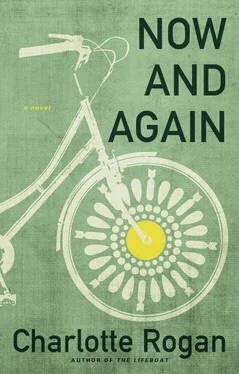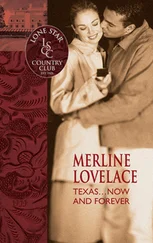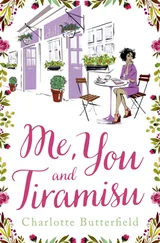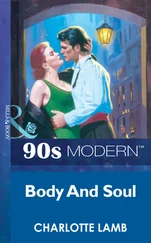But that was wishful thinking. Wishful thinking was why Maggie had started down this path, and he guessed he wasn’t the only one who had been unable to see where it would lead. Lyle sat in the truck while the sun reached its zenith and started its slow descent over the boxy Multiplex. Finally, he jiggered the key in the ignition and drove down the street to the diner, where he ordered a cup of coffee and tried to piece together a plan of action. The clock above the counter ticked past four o’clock and then past five. All around him noisy families were gathering to celebrate the weekend by ordering from the giant plastic menus that had always fascinated Will and that Lyle still saw as evidence that the world was big and filled with opportunity. When the waitress began to frown and snap her gum, Lyle realized that instead of pondering the problem, he was only staring blankly at the Formica countertop and waiting for inspiration to strike.
He had to think, but he didn’t know what to think about. It wasn’t until he had paid the bill and stepped out into the soft June breeze that it occurred to him that instead of bemoaning the way things were, there were two questions he should be asking himself. The first was, How would Maggie solve the where-and-when-to-meet problem? As if that was not difficult enough, he would also have to ask if Maggie even knew about the problem.
Since there was no way to answer the second question, he could only assume she knew and work on an answer to the first. He should have made sure she wouldn’t come home unexpectedly by telling her the police investigation wasn’t over instead of trying to protect her by holding information back.
Then he remembered what Jimmy had said about goal-setting, about tactics and execution. The goal was to meet up with Maggie. As for tactics, he had to put himself in her shoes. What would she be thinking? Even more critical to the solution was, What would she be thinking he was thinking? Was there something so obvious that it would not only be obvious to her, but it would also be obvious to her that it was obvious to him? And it struck him with the eureka force of discovery that there was an obvious time to meet! It was noon. They had met in the lunchroom after the twelve o’clock bell for the four years they had worked together at the munitions plant, and he knew with absolute certainty that noon would be obvious to Maggie just as it had been obvious to him. Just in case he was clairvoyant after all, or Maggie was, he closed his eyes and sent a message to her, wherever she might be: Noon, Maggie. We’ll meet at noon.
But now the matter of where to meet arose. The first place he thought of was the munitions plant lunchroom, but that wasn’t realistic. Maggie no longer had an employee badge; nor, for that matter, did he. But again, as if the coffee shop had been inhibiting his problem-solving skills and the fresh air was the thing needed to jump-start mental activity, the answer came unbidden. The bus station! A transportation hub was the obvious place, but on what day and in which city? The last time they had played the travel game, he had wanted to go to Tahiti. How realistic was that?
Lyle hurried along the sidewalk to where the truck was angled in between two sleek late-model cars. The fender Will had dented in the snowstorm was starting to rust. A crack spidered across the windshield, and the defective muffler was hanging nearly to the ground. But it still started right up every time he turned the key, and he didn’t reckon a man could ask much more of his truck than that.
Just as he was backing out of his parking space, he saw True Cunningham walking along the sidewalk, surrounded by a group of friends. “True,” he called out. “Hey, True!”
“Why, Lyle, I haven’t seen you in I don’t know how long! Maggie called me a few days ago, but when I looked for you at the plant, they told me you were no longer working there.”
Lyle motioned her over to the open window, hoping the others wouldn’t follow her. “I want to get a message to Maggie,” he said. “I know you have experience with, well, with sending messages via—”
“ESP,” True finished for him in an exhibition of the very skill he was looking for.
“Exactly. I was hoping you could help me with that.”
“Sure I can, honey. Now what kind of a message are you hoping to send?”
True’s friends were standing on the sidewalk, craning their necks to hear what she and Lyle were talking about. Even if he took True someplace private and swore her to secrecy, it was only a matter of time before she broke down and gossiped about his business. And if, for some reason, she tried to keep his secret, the police might get it out of her, or it might be picked up by the hidden surveillance cameras everyone was installing, not to mention the fact that cell phones could surreptitiously be switched to record. Lyle put the truck in gear and tried to look as if he were late for something. “Never mind, True. I’ll call you later to explain.”
When he turned onto Park Drive, he had to stop while a group of boys crossed the road, loaded down with gear and headed toward the town baseball field for an evening practice. Lyle had never been on a baseball team, never had a bunch of buddies he could rely on. It was just as well, he thought now. It might have made him soft, and first and foremost, a man ought to rely on himself.
He nestled the truck in behind a grove of cottonwood trees and spent the night alternately dozing and sending Maggie messages via ESP. Don’t come home, he thought, but he didn’t know if he could send the messages or if she could receive them. The sweat pooled in his armpits and on his brow. It had upset him to see the firepower in the sheriff’s truck, and now a horrible dread came over him. What if the bus station had come to mind because Maggie was sending a message to him? Where would she go if she could go anywhere? Suddenly he knew, and it wasn’t New York City or the Grand Canyon or Niagara Falls. It was Red Bud, Oklahoma. Don’t come home, he thought again as he drifted on the edge of sleep. And don’t go to the bus station. Whatever you do, Maggie, don’t go there!
Lyle said he’d call me later, but he never did. I sent a telepathic message to Maggie anyway. I knew what he wanted to tell her. He wanted to tell her to come home, so that’s the message I sent.
— True Cunningham
We figured if she didn’t come to him, he’d go to her.
— Sheriff Hank Conway
Were we cooperating with law enforcement? Absolutely. But buying the site was our insurance policy.
— Lex Lexington
I told them they should consider moving their headquarters overseas, but they just laughed at me. They said, “Hell, we’re just some guys trying to make sense out of the war.”
— Anonymous
Just before he left, the captain asked if I thought we were in over our heads. He said that if the buyers seemed at all competent, maybe we should sell.
— Le Roy Jones
The captain and I were kind of opposites. He was changing his mind about selling just as I was changing mine.
— Joe Kelly
Being told not to write the article about Maggie lit a fire under that Fitch boy. After that, he started poking his nose into everything. Wait a sec — what did you say your name was? You’re him, aren’t you? You’re that reporter fellow, Martin Fitch.
— August Winslow
12.1 Penn Sinclair
Penn spent his last day in New York City shopping for an engagement ring. He hadn’t known it would be so complicated: How much did he want to spend? Which cut of stone did he find appealing? Should the band be platinum or gold, and if it was to be gold, what about alloy and purity?
Читать дальше












